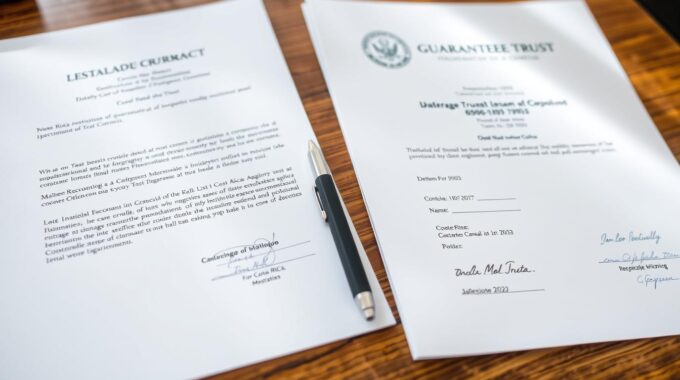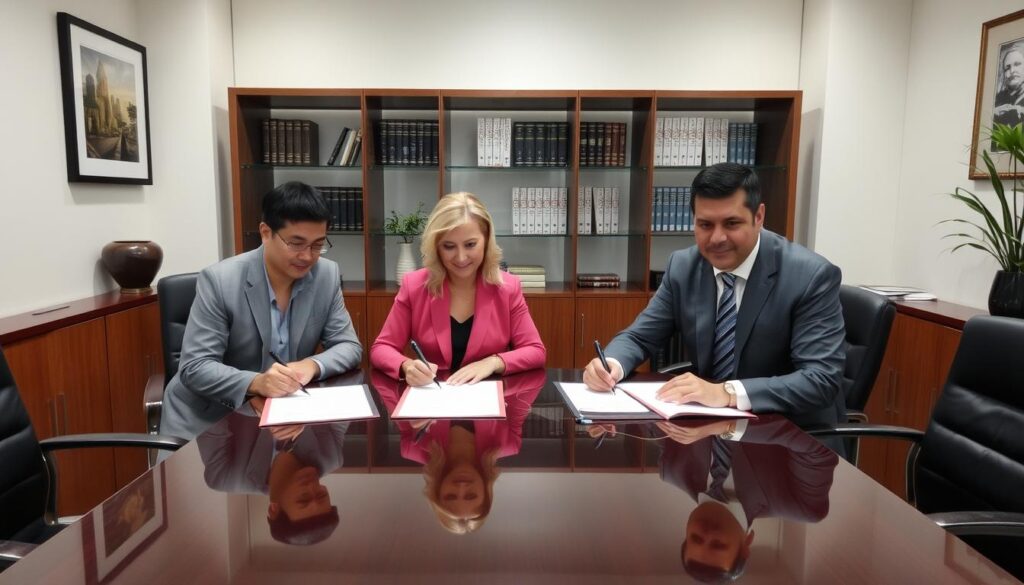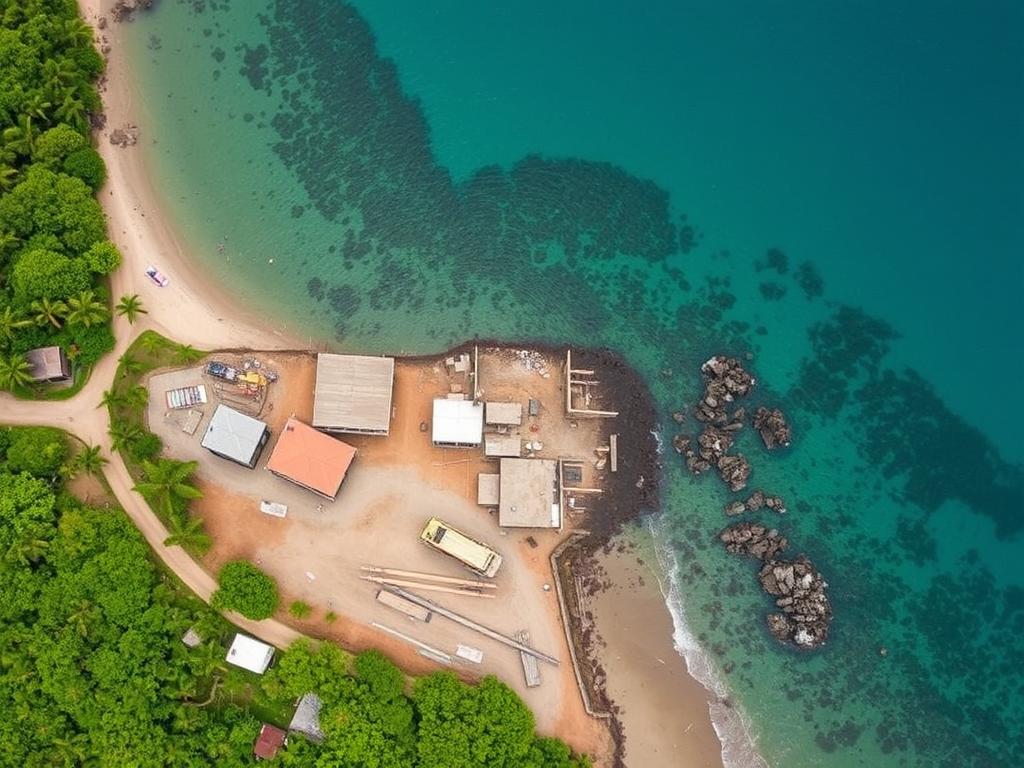Explore financing-options-for-costa-rica-real-estate with competitive rates and flexible loan terms. We connect borrowers with private investors, simplifying the process.

Mortgages vs Guarantee Trusts in Costa Rica: Which Is Better for Private Lenders?
For international investors and private lenders looking to enter the Costa Rican real estate market, understanding the legal frameworks that secure your investment is crucial. Two primary options exist for securing loans in Costa Rica: traditional mortgages and guarantee trusts (fideicomiso de garantía). Each offers distinct advantages and challenges that can significantly impact your investment’s security, flexibility, and profitability. This comprehensive guide examines both options to help you make an informed decision aligned with your investment goals.
Legal Definitions Under Costa Rican Law
What Is a Mortgage in Costa Rica?
A mortgage (hipoteca) in Costa Rica is a two-party legal instrument where the borrower (mortgagor) uses their property as collateral for a loan from the lender (mortgagee). The property remains in the borrower’s name, but the mortgage is registered as an encumbrance in the National Registry. If the borrower defaults, the lender must pursue a judicial foreclosure process through the Costa Rican court system.
What Is a Guarantee Trust in Costa Rica?
A guarantee trust (fideicomiso de garantía) involves three parties: the borrower (trustor), the lender (beneficiary), and an independent third party (trustee). The property’s title is transferred to the trustee who holds it in trust. If the borrower defaults, the trustee can initiate a non-judicial foreclosure process according to the terms established in the trust agreement, typically resulting in a faster recovery for the lender.
“Understanding the fundamental differences between mortgages and guarantee trusts is essential for any private lender considering the Costa Rican market. These instruments operate under different legal frameworks that directly impact your risk exposure and recovery options.”
Comparing Mortgages vs Guarantee Trusts for Private Lenders
Legal Requirements and Processes
Mortgage Requirements
- Must be constituted in a public deed by a notary public
- Requires registration in the National Registry
- Registration fee: 1.65% of the loan amount
- Cancellation fee: 0.65% of the loan amount
- Two-party agreement between borrower and lender
Guarantee Trust Requirements
- Must be constituted in a public deed by a notary public
- Requires registration in the National Registry
- Trustee fees: Approximately $500-1000 per year
- Property transfer fees apply (with some exemptions)
- Three-party agreement including an independent trustee
Risk Exposure Comparison
| Risk Factor | Mortgages | Guarantee Trusts |
| Foreclosure Timeline | Judicial process, typically months to years depending on court backlog | Non-judicial process, typically 2-6 months |
| Foreclosure Costs | Higher due to court fees and legal representation | Lower due to private execution process |
| Borrower Protections | More opportunities for borrower to contest foreclosure | Fewer opportunities to contest, streamlined process |
| Possession Enforcement | Requires court order for police to enforce possession | Administrative proceeding with Ministry of Security |
| Statute of Limitations | 10 years for principal, 1 year for interest | 4 years (standard commercial statute) |
Flexibility in Loan Terms
Guarantee trusts offer greater flexibility in structuring loan terms compared to mortgages. With a trust, private parties can establish specific conditions for default, remediation periods, and execution procedures. Mortgages, being more regulated by Costa Rican law, offer less flexibility but provide a more standardized process that may be easier to understand for first-time lenders.

Tax Implications
Both instruments have different tax considerations that can impact your investment returns:
Mortgage Tax Considerations
- Registration tax: 1.65% of loan amount
- Cancellation tax: 0.65% of loan amount
- No annual maintenance fees
- Interest income subject to standard taxation
Guarantee Trust Tax Considerations
- Property transfer tax: 3.5% of fiscal value (some exemptions apply)
- Annual trustee fees ($500-1000)
- Potential double transfer tax upon execution
- Interest income subject to standard taxatio
Real-World Examples in Costa Rican Real Estate
How Mortgages Work in Practice
In Costa Rica, mortgage loans typically range from 7-11% and higher interest in US dollars. When a property is purchased using mortgage financing, the borrower retains ownership while the lender registers the mortgage as an encumbrance in the National Registry. This creates a public record of the lender’s security interest in the property.

For example, a private lender might provide a $200,000 loan for a beach property in Guanacaste. The mortgage is registered with a first-priority lien, meaning this lender has priority over any subsequent creditors. If the borrower defaults, the lender must file a judicial foreclosure case, which typically takes 8-14 months to complete before the property can be auctioned.
How Guarantee Trusts Work in Practice
With a guarantee trust, the property’s title is transferred to a trustee (often a bank or trust company) who holds it on behalf of both parties. The borrower maintains possession and use of the property while making payments. The trust agreement specifies exactly what happens in case of default.

For instance, a private lender financing a $150,000 commercial property in San José might use a guarantee trust structure. The trust agreement would specify that after three missed payments, the trustee can initiate the private auction process without court involvement. This typically results in recovery within 2-4 months, significantly faster than the mortgage foreclosure process.
Case Studies: Choosing Between Mortgages and Guarantee Trusts
Case Study 1: Short-Term Development Loan

Scenario: A private lender providing a 12-month, $300,000 loan for a small development project in Jacó.
Decision: Guarantee trust selected due to faster recovery process if default occurs.
Outcome: When the developer faced financial difficulties after 8 months, the lender was able to recover the property through the trust’s private auction process in just 3 months, minimizing losses.
Case Study 2: Residential Long-Term Financing

Scenario: A 15-year, $500,000 loan for a luxury residential property in Escazú.
Decision: Traditional mortgage selected due to lower ongoing costs and established legal framework.
Outcome: The standardized mortgage process provided clear terms for both parties, and the absence of annual trustee fees improved the loan’s long-term profitability for the lender.
Case Study 3: Foreign Investor Consortium

Scenario: A group of foreign investors providing a $1.2M loan for a commercial property in Liberia.
Decision: Guarantee trust selected for its flexibility in structuring complex multi-party agreements.
Outcome: The trust structure allowed for clear delineation of each investor’s rights and responsibilities, while providing a streamlined recovery process that didn’t require navigating the Costa Rican court system.
“The choice between mortgages and guarantee trusts should be tailored to your specific investment timeline, risk tolerance, and familiarity with Costa Rican legal processes. What works for one investment scenario may not be optimal for another.”
Decision-Making Checklist for Private Lenders
When deciding between a mortgage and a guarantee trust in Costa Rica, consider the following factors:

Choose a Mortgage If:
- You’re providing long-term financing (10+ years)
- You want to minimize upfront and ongoing costs
- You’re comfortable with the Costa Rican judicial system
- The loan-to-value ratio is conservative (under 60%)
- You prefer a standardized, well-established legal framework
- The borrower has strong credit and income verification
Choose a Guarantee Trust If:
- You’re providing short to medium-term financing (1-7 years)
- Quick recovery in case of default is a priority
- You want to avoid the court system for foreclosure
- You need flexibility in structuring the loan terms
- The loan involves multiple lenders or complex arrangements
- You’re willing to pay higher setup and maintenance costs
Essential Due Diligence Steps
Regardless of which instrument you choose, always complete these due diligence steps:
- Verify the borrower’s credit history through Costa Rican credit bureaus
- Obtain proof of income and financial stability documentation
- Conduct a thorough property appraisal by a licensed Costa Rican appraiser
- Perform a complete title search at the National Registry
- Verify property tax payments are current
- Check for any existing liens or encumbrances
- Review zoning regulations and permitted uses
- Assess environmental risks and compliance
Get Expert Guidance on Costa Rican Real Estate Lending
Still unsure which option is best for your investment strategy? Our team of legal and financial experts specializes in Costa Rican real estate investments for international lenders. Schedule a consultation to discuss your specific needs and receive personalized recommendations.
Frequently Asked Questions: Mortgages vs Guarantee Trusts in Costa Rica
What are the typical interest rates for private lending in Costa Rica?
For mortgages in Costa Rica, private lenders typically charge interest rates ranging from 7% to 11% in US dollars. Vehicle loans and other higher-risk lending can command rates up to 40% per annum. However, Costa Rica has established usury laws that limit the maximum interest rates lenders can legally charge.
How long does foreclosure take with each option?
Mortgage foreclosures in Costa Rica typically take 8-14 months as they require judicial proceedings. Guarantee trust foreclosures are significantly faster, usually completed within 2-6 months through a private auction process that doesn’t require court involvement.
Can foreign lenders use both mortgages and guarantee trusts?
Yes, foreign lenders can utilize both instruments in Costa Rica. There are no restrictions based on nationality. However, foreign lenders should work with local legal counsel to ensure proper documentation and compliance with Costa Rican regulations.
What are the statute of limitations for each lending option?
Mortgages in Costa Rica have a statute of limitations of 10 years for the principal amount and 1 year for interest. Guarantee trusts, being commercial instruments, typically have a 4-year statute of limitations.
Are there any restrictions on what properties can be used with either instrument?
Both mortgages and guarantee trusts can be used with most types of real estate in Costa Rica. However, properties in certain zones, such as maritime zones (ZMT), may have restrictions or require additional permits. Always verify the property’s legal status before proceeding with either lending instrument.
Conclusion: Making the Right Choice for Your Investment
The decision between mortgages and guarantee trusts in Costa Rica ultimately depends on your specific investment goals, risk tolerance, and timeline. Mortgages offer a traditional, well-established framework with lower ongoing costs but slower recovery in case of default. Guarantee trusts provide faster recovery options and greater flexibility but come with higher setup and maintenance costs.
For private lenders entering the Costa Rican market, understanding these differences is crucial to protecting your investment and maximizing returns. By carefully assessing the borrower, the property, and your own investment priorities, you can select the instrument that best aligns with your lending strategy in this dynamic Central American market.
Article by Glenn Tellier (Founder of CRIE and Grupo Gap)



